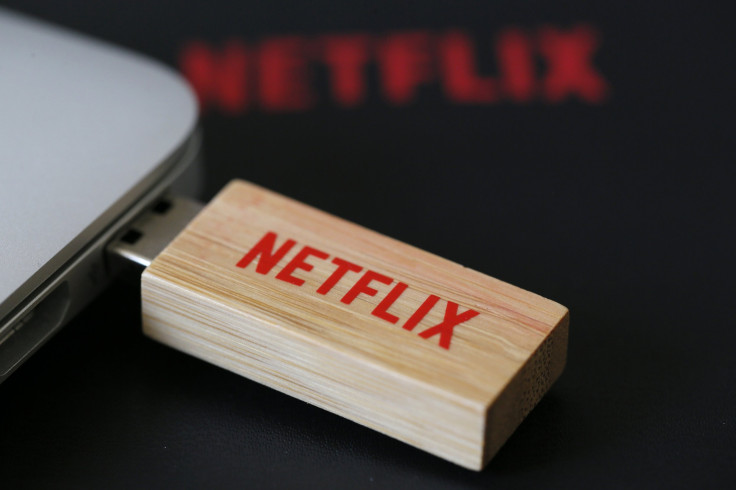Netflix Inc (NFLX) Q3 2015 Earnings: US Subscriber Growth Misses Estimates, Stock Tumbles

Netflix Inc. reported third-quarter 2015 earnings Wednesday, with U.S. subscriber growth missing forecasts and shares taking a tumble, proving once again that growth is its key metric and profits are secondary. The Los Gatos, California, video-streaming giant added 2.62 million customers for the three-month-period ended Sept. 30, only 880,000 of them in the U.S.
Netflix had predicted it would gain 1.15 million U.S. subscribers in the quarter. In a letter to shareholders, CEO Reed Hastings said the miss was due to higher-than-expected "involuntary churn," or an inability to collect fees due to a transition to chip-based credit and debit cards.
The company, however, slightly exceeded projections for international growth, adding 2.74 million international subscribers versus consensus estimates of 2.4 million.
Netflix now has 69.17 million global subscribers, including 43.18 million U.S. and 25.99 million international.
The company also missed estimates on profits and revenue, reporting earnings per share of 7 cents on revenue of $1.74 billion. Wall Street had projected EPS of 8 cents on revenue of $1.75 billion.
Shares fell about 14 percent Wednesday in after-hours trading, but rebounded somewhat about an hour after the report.
Growing Pains
Netflix had seen astounding growth over the last several quarters, but there are signs of trouble looming. Resentment from traditional media companies is growing, and some executives now say they struck content licensing deals with Netflix too easily and hastily, only to foster the creation of a streaming behemoth that is now widely believed to be quickening the demise of the traditional pay-TV ecosphere.
At a Goldman Sachs conference in New York last month, media chiefs James Murdoch of 21st Century Fox and Jeff Bewkes of Time Warner Inc. were among those who said they are rethinking their strategies about how they sell their content. And in August, Netflix said it would not renew a content deal with Epix, meaning subscribers would lose access to popular Hollywood films such as “The Hunger Games: Catching Fire,” “The Wolf of Wall Street” and “World War Z.” Epix ultimately signed with Hulu.
Richard Greenfield, an analyst with BTIG, said one of the key questions for Netflix this quarter is whether it sees the growing hostility from media companies as a risk to its robust library of content.
“With many programmers now openly criticizing Netflix, and investors imploring traditional media companies to ‘take back their content,’ how, if at all, have your internal plans changed with respect to licensing content from networks or vertically integrated studios like Warner Bros. or Fox versus independent studios like Lionsgate or Gaumont?” Greenfield wrote Tuesday in a blog post.
Conventional wisdom suggests Netflix has been more concerned with doubling down on investments in original content, even if that means sacrificing some of its existing library. But such a shift would present new challenges for a company that cut its teeth as a one-stop DVD mail service. Original content is expensive, and becoming a consistent hit-maker is not as easy as it looks.
Netflix, of course, had success out of the gate with series like “House of Cards” and “Orange Is the New Black,” but some of its newer efforts, including “Sense8” and “Gracie and Frankie,” have been decidedly less buzzy. The company debuted a number of releases in the third quarter, including the crime drama “Narcos” and the comedy “Wet Hot American Summer: First Day of Camp.”
Netflix does not share data on how many people actually watch its shows -- a policy that drew criticism last month from executives at Nielsen, who wrote in a Wall Street Journal op-ed that content owners need to know how many people are watching video-streaming services if they are to know whether they are getting a fair value for their movies and TV shows.
Greenfield disagreed. In a response to the op-ed, he argued on his blog that Netflix’s value comes from a healthy subscriber base, not traditional ratings. “Would ‘Orange is the New Black (OITNB)’ be more valuable to Lionsgate if detailed viewership information was released by Netflix?” he wrote. “While we doubt any studio would not want more vs. less information, the reality is what you really want to know is how many subscribers would drop Netflix if ‘OITNB’ were not there, how many would not sign up if ‘OITNB’ did not exist and how many would be willing to pay more for Netflix monthly because ‘OITNB’ is on the service. Unfortunately for Nielsen, we do not believe ratings are highly correlated to these three unknowns.”
Christopher Zara covers media and culture. News tips? Email me. Follow me on Twitter @christopherzara.
© Copyright IBTimes 2024. All rights reserved.






















